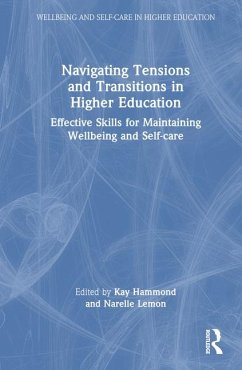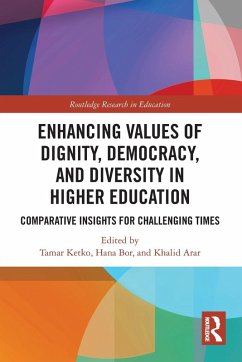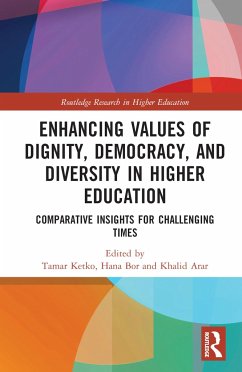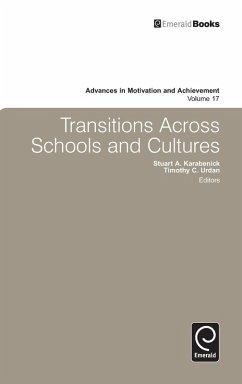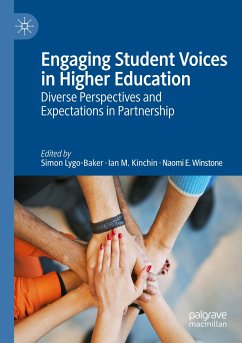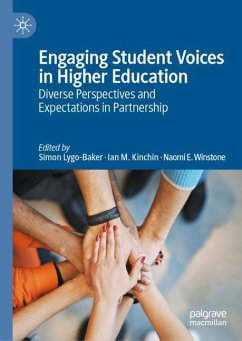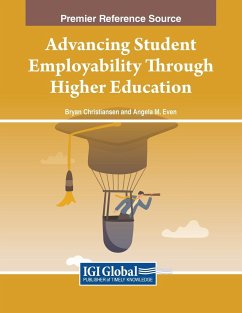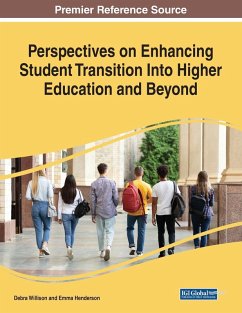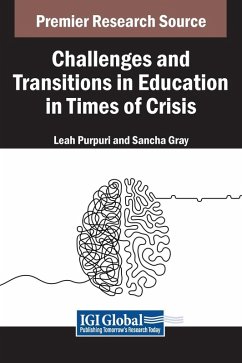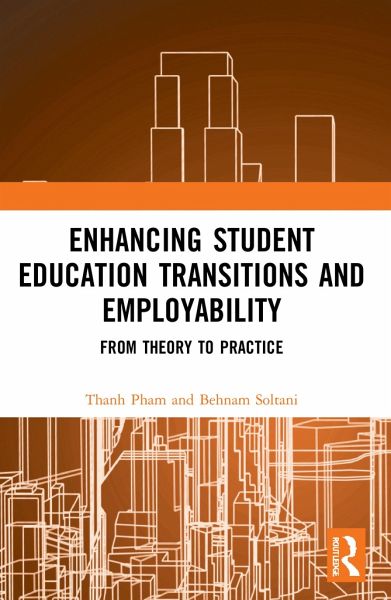
Enhancing Student Education Transitions and Employability
From Theory to Practice
Versandkostenfrei!
Versandfertig in 1-2 Wochen
50,99 €
inkl. MwSt.
Weitere Ausgaben:

PAYBACK Punkte
25 °P sammeln!
This book explores student education transition and employability negotiation experiences in various contexts. It explores determinants of student transitions at three levels including macro, meso and micro but focuses on exploring affordances, constraints and strategies at the micro level. The framework underpinning the explorations at the micro level covers a range of different forms of capital including human, culture, social, identity, psychological and agentic. The book is unique in three ways. First, it consists of chapters about critical discussion, empirical research and practical guid...
This book explores student education transition and employability negotiation experiences in various contexts. It explores determinants of student transitions at three levels including macro, meso and micro but focuses on exploring affordances, constraints and strategies at the micro level. The framework underpinning the explorations at the micro level covers a range of different forms of capital including human, culture, social, identity, psychological and agentic. The book is unique in three ways. First, it consists of chapters about critical discussion, empirical research and practical guidance about student transition experiences. The critical discussion and empirical research chapters explore and obtain insights about the complexity of student transitions and develop conceptual frameworks that guide the development of applicable practices. The book is, therefore, a useful resource for policy makers, institutions, academics, professionals and students. Second, it provides insights about how student transitions are determined by a range of factors at different levels. These insights extend discussions about student transitions in the current literature which have mainly explored impacts of policies, institutional programmes and human capital. Finally, it is international in focus because it draws on research with different cohorts of students and graduates in different contexts. Insights provided in the book are, therefore, rich, diverse and comparative.





